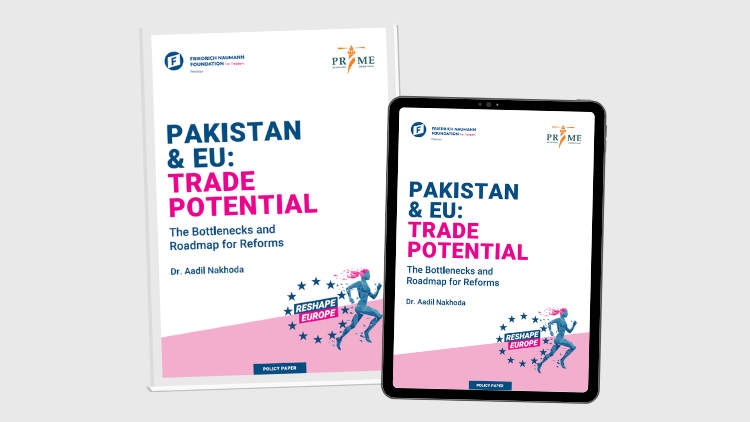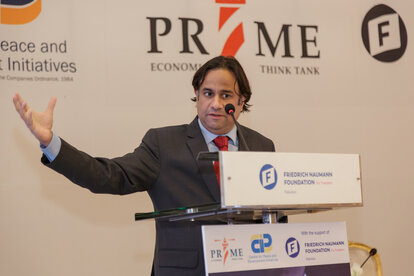Publication
Pakistan and EU : Trade Potential

Book Title: Pakistan and EU Trade Potential
© FNF Pakistan
Revocation of the GSP+ status will lead to a trade loss of more than $3 billion to Pakistan, the biggest market affected will be Germany.
Trade plays a vital role in driving economic growth, but Pakistan’s trade performance has been volatile, with stagnant export growth and a rising trade deficit. The Generalized Scheme of Preferences (GSP) Plus is offered to a select group of exporters to the European Union (EU) based on a set of pre-defined criteria and the fulfillment of various conventions regarding human rights, labor rights, good governance, climate change and environment protection. Pakistan received the status on January 1, 2014. Pakistan currently is a signatory to all the 27 conventions and is also a signatory to the additional conventions proposed under a new revised scheme that is likely to replace the current one that is expiring at the end of this year (Dec 2023).
This study conducted with out Partner PRIME Institute outlines and evaluates the pattern of imports into the European Union (EU) from Pakistan, highlighting not only on the significance of the trading relationship between the EU and Pakistan but also emphasizing on the potential threats and risks if the preferences to Pakistani exporters offered through the GSP Plus Scheme are revoked.
One of the more important findings highlighted in this report is that the revocation of the GSP Plus status will lead to a trade loss of more than $3 billion, with significant loss in exports of bed linen, and men’s and women’s trousers. The biggest market affected will be Germany. The loss of $3 billion is significant as Pakistan faces critical balance-of-payment related challenges. Hence, it is crucial that all efforts are made to ensure that Pakistan complies with all the requirements to continue with the status.

Dr Aadil Nakhoda (Author) during the launch of the report "EU and Pakistan Trade Potential" during the Conference by FNF/PRIME/CPDI "Challenges to Political Stability and Economic Revival" on 2nd October 2023
© Friedrich Naumann Foundation for Freedom Pakistan